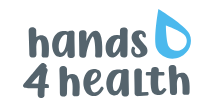hands4health - Hand hygiene, water quality and sanitation in primary health care facilities and schools not connected to a functional water supply system
Project Abstract
Globally, three-quarters of people in sub-Saharan Africa and 25% worldwide lack basic hygiene services, defined as access to a handwashing station with soap and water. In health care centres and schools, this situation is dire, with only 60% of schools and 40% of health care facilities in low-income countries providing basic hand hygiene services. These gaps are even more pronounced in conflict settings, where basic WASH infrastructure is often severely compromised.
In such fragile contexts, poor water quality, overburdened sanitation systems, and inadequate water supply mean that hygiene needs are often unmet, leading to increased disease transmission. Yet, despite the heightened risk of infection, there is a dearth of research on hand hygiene in primary health care centres and schools, and monitoring and evaluation efforts remain under-prioritised.
The “Hand Hygiene for Health” (Hands4Health) project aims to address this need by implementing a multicomponent hand hygiene intervention in primary health care centres and schools in settings with protracted conflict. Components of the intervention include:
- Infrastructure improvements, e.g. installation of Gravit’eau hand-washing stations, which operate with recycled water
- Behaviour change interventions
- Monitoring and evaluation
Our team at Swiss TPH is part of a consortium of 10 partners from academia, non-governmental organisations and the private sector. Our role is to implement and analyse a cluster randomised controlled trial to evaluate the effectiveness the Hands4Health intervention.
Our work has the following objectives:
- Assess the impact of the Hands4Health intervention on hygiene-related behavioral factors (including risks, attitudes, norms, abilities, and self-regulation, or RANAS), handwashing behavior, and overall well-being of health care workers and students.
- Establish a baseline for hygiene-related RANAS factors, handwashing practices, and well-being among health care workers and students in the target facilities.
- Evaluate the perceived effectiveness of the in on health outcomes and well-being of individuals in intervention facilities.
Main Applicant(s)
Co Applicant(s)
Related Publications
All PublicationsGalli A, Ma'ani Abuzahra Y, Bänziger C, Ballo A, Friedrich M.N.D, Gross K, Harter M, Hattendorf J, Peter M, Tamas A, Owen B.N, Winkler M.S. Assessing the effectiveness of a multicomponent intervention on hand hygiene and well-being in primary health care centers and schools lacking functional water supply in protracted conflict settings: protocol for a cluster randomized controlled trial. JMIR Res Protoc. 2024;13:e52959. DOI: 10.2196/52959
Related Topics
All TopicsRelated Activities
All Activities
